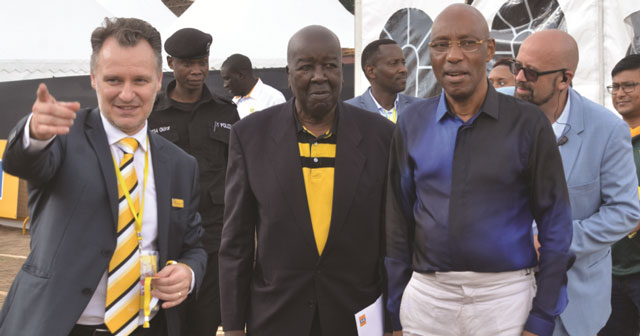
MTN told to fulfill the National Broadband Policy as a condition to have its licence renewed
Kampala, Uganda | ISAAC KHISA | It is impossible to tell a story about the Uganda’s telecom revolution that began more than 20 years ago without mentioning MTN.
The South African firm entered the country’s telecom market in 1998 after the entry of Celtel, now Airtel and Uganda telecom (UTL). This was followed up with entry of other smaller players including Africell.
However, while the other companies went through several ownership changes or closed shop, MTN aggressively expanded in Uganda becoming the dominant telecom firm.
Today it has around 10.5million subscribers, and controls slightly more than 50% of the country’s telecom market that has approximately 23million subscribers.
But something changed since 2015 as the company faced multitude of accusations that seem not to be coming to an end soon – ranging from being unable to protect its mobile money customers from fraud to allegedly undermining national security.
On Jan. 22, the government deported two of its foreign expatriates for espionage and funding the hostile campaigns against the government, a situation that has placed the telecom firm in a fix – negotiating the licence renewal and battling with the criminal investigation against a section of its expatriates.
The deported executives include Annie Bilenge Tabura, a Rwandan national who served as general manager, sales and distribution, and Olivier Prentout, a French national who served as chief marketing officer.
This preceded deportation of another executive, Elsa Mussolini, an Italian national on Jan. 23, for allegedly inciting violence. Mussolini served as the telecom’s general manager for Mobile Money.
Frank Tumwebaze, the information, communication, technology and national guidance minister told The Independent that while MTN is currently in collision with a section of security agencies, cabinet in the previous meetings agreed to renew the firm’s licence subject to conclusion of negotiation with regard to the licence fee and sections of the new National Broadband Policy.
“The issue that is only remaining was the amount of fee that MTN was supposed to pay…so we are still in negotiation and hope that in about two months, the issue of licence should have been concluded,” he said.
President Yoweri Museveni, in a letter to the communication minister [Tumwebaze] and the attorney general dated Nov. 19, is said to have been “astonished” by UCC’s decision to reduce the charge to $58 million, down from US$100million originally set to the 10-year renewal.
But in a letter dated Dec. 14, the minister said UCC had decided to cut MTN’s fee after MTN said it would need to invest about $200 million to meet the conditions of a new National Broadband Policy.
Godfrey Mutabazi, the executive director at UCC, a government agency mandated to issue licences to telecom firms told The Independent in an interview that they are ready to renew MTN licence once it agrees to fulfil some of the conditions as stipulated in the policy.
“The current issues surrounding MTN (of deporting its executives) is a separate matter being handled by a different entity,” he said. “Our (mandate) is to grant them licence once they meet the conditions as stipulated in the policy.”
MTN’s 20-year license expired in October last year. The company applied for a 10 year extension and UCC gave it an initial interim renewal lasting 90-days pending resolution of some issues with the coming on board of the National Broadband Policy before a final license is issued.
One of the key issues in the policy is the listing on the local stock market as a new licencing condition for all the telecoms to help mitigate capital flights and ensuring that Ugandans own part of the company.
The other issues rotate around the telecom’s rollout obligations, quality of service and technological advancement.
The policy also stipulates that spectrum should not be owned by private telecom providers as it is at the moment and that customers should have seamless access and coverage irrespective of their network work.
However, Valery Oketcho, the MTN Corporate Communications Director said the negotiations are still ongoing to finalise the licence process.
“We are simply an applicant in this and we wait for a regulator to make the final decision,” he said adding that UCC has granted the telecom firm another 90-days provisional licence.
 The Independent Uganda: You get the Truth we Pay the Price
The Independent Uganda: You get the Truth we Pay the Price





